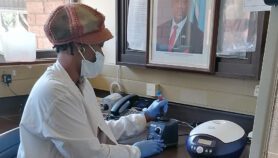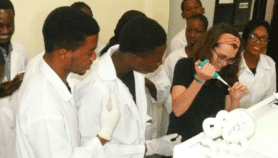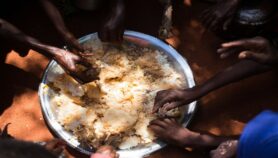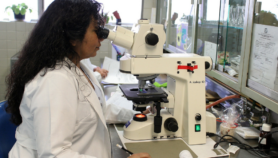By: Carol Campbell
Send to a friend
The details you provide on this page will not be used to send unsolicited email, and will not be sold to a 3rd party. See privacy policy.
An international research laboratory set up to investigate health issues facing Africa, in particular infectious diseases, opens in South Africa today (10 September).
The facility, housed at the University of Cape Town, is the third component of the International Centre for Genetic Engineering and Biotechnology (ICGEB), a United Nations research, training and technology-sharing agency. The ICGEB headquarters are in Trieste, Italy, and there is a second laboratory in New Delhi, India.
Molecular biologist Iqbal Parker, the laboratory’s director-designate, told SciDev.Net, "This is about using cutting-edge science to find African solutions to African problems." Grants will be made available to the scientists working in Africa on African problems, he said.
The South African government has invested 40 million rand ($US5.5 million) in the project so far.
"The South African government appreciates the value this laboratory can have in improving the lives of all Africans, and for this reason we are in this for the long run," Mmampei Mabusela, director of multilateral cooperation for South Africa’s Department of Science and Technology, told SciDev.Net.
Mabusela also said that the laboratory would raise Africa’s position in the international science fraternity by drawing skills from around the globe and showcasing local talent. "That we have been chosen to host a laboratory of this level is an honour," she said.
The laboratory will initially run three research programmes, each with 20–25 scientists. The first, headed by immunologist Frank Brombacher, will investigate infectious diseases, including HIV/AIDS, tuberculosis and malaria, as well as ‘river blindness’ (onchocerciasis, caused by a worm in west and central Africa), leishmaniasis (a parasitic infection spread by sandflies) and schistosomiasis (a water-borne fluke infection carried by snails).
A second programme will look at non-infectious diseases, including diabetes, obesity, cardiovascular disease and different cancers — all on the rise across the continent as lifestyles become more westernised.
The third programme will cover agricultural biotechnology, to help secure Africa’s food production.
"By 2010 we hope to have seven research groups involving scientists, doctoral and masters students from across the world," Mabusela said.













